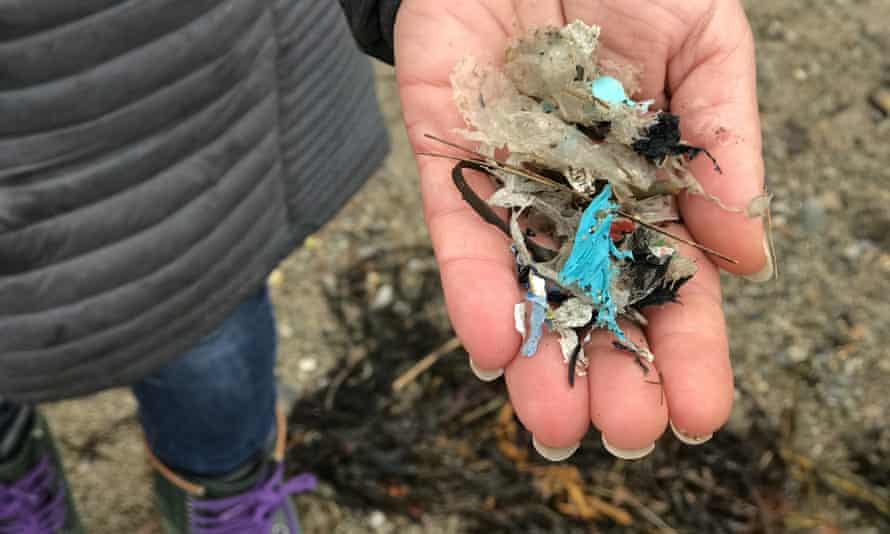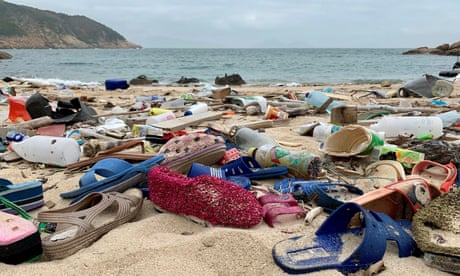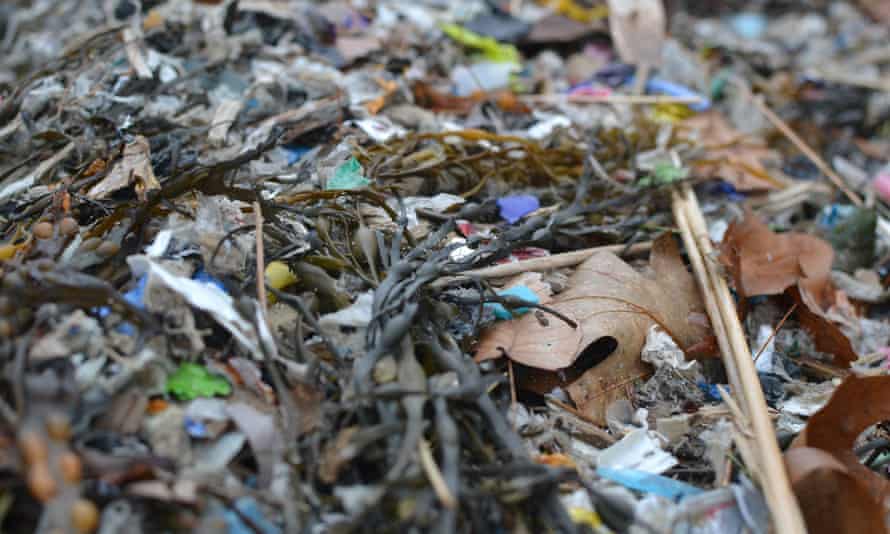From Islesboro Island Trust 12/15/20
Plastic Waste from Ireland en route to the waste-to-energy incinerator in Orrington, Maine washes up on Islesboro
On a sunny December 2, 2020, with a brisk southerly breeze, Sprague Operating Resources dropped more than 2 tons of plastic waste next to the Mack Point terminal in Searsport while unloading a shipment of about 100 metric tons of what is called solid-recovered fuel [SRF - plastic that can’t be recycled that is processed for burning in facilities like the Penobscot Energy Company (PERC)] from the MV Sider London carrying this material from Re-Gen Waste in the United Kingdom to PERC.

John Kerr photo
Sprague did not report the spill at that time. The plastic spill was not known until six days later on December 8 when someone walking on Sears Island’s western beach noticed a huge amount of plastic, some in highly compressed chunks, mixed with seaweed along about a half-mile of the high tide line. The walker contacted journalist Ethan Andrews and the Maine Department of Environmental Protection (DEP). Andrews then broke the story to public media.
After media and DEP notification, Sprague launched a clean-up effort by contracting Clean Harbors from Hampden, Maine, who reportedly then sent a small clean-up crew to Sears Island. Hundreds of volunteers from Friends of Sears Island, the Maine Ocean School in Searsport, Upstream Watch and elsewhere provided significant additional clean-up help.
IIT learned about this plastic spill on Wednesday, December 9, after reading the brief Facebook report from Andrews. In addition to discussing this with Jon Kerr, retired biology teacher, IIT Trustee and IIT Preserves management assistant who I knew to be deeply concerned about all plastics in the world’s oceans but especially about microplastics, I walked the western shore of the Turtle Head Preserve to see whether any of the spill had washed ashore there.
Thankfully, none of this material could be seen along that stretch of Islesboro’s shore. I made two subsequent surveys here that did not reveal any of the spill at Turtle Head.
However, on Sunday, December 13, while walking the stretch of beach associated with the Red House Farm conservation easement that was given to IIT by Mrs. Owsley in 1988, Jon Kerr and Laine Alexander found some of the Irish plastic mixed with seaweed along what Jon described as an approximately 35- to 40-foot-long area of their beach. They looked both north and south of this location but did not find any more.
Jon immediately contacted IIT. IIT helped put him in touch with DEP and Ethan Andrews. Jon collected a few pieces of the shredded plastic and took pictures.
Monday, Jon wrote, “I talked to DEP this morning; was put through to three different people. Finally, was told that the cargo port was in charge of the clean-up and to contact them. I called Josh Littlefield, [Sprague manager] who is in charge of overseeing the clean-up, and left a message that the plastic is making an appearance on our shore.” Later in the day Jon reported that Littlefield “is going to try to have someone come out tomorrow [Tuesday, December 15] to look at a possible plastic clean-up plan.”
The stretch of beach where Jon and Laine found the plastic material is located on what chart’s refer to as Sprague’s Cove, roughly opposite Sprague’s Ledge and a little south of Barley Ledge. The location is not readily accessible by boat and is a considerable distance from Keller Point Road, the closest public way.
According to Friends of Sears Island President Susan White, who spent time on Sears Island helping to clean-up the plastic debris and with whom we have been in communication regarding this plastic spill, hand-picking the thousands, perhaps millions of very small pieces entangled in the seaweed is incredibly inefficient and cannot reasonably be expected to retrieve all of the pieces before continued dispersal in Penobscot Bay. Susan asks, “Who has the authority to determine when the [clean-up] work will be complete?”
IIT and others are also asking, “Where else in the Bay might this plastic be found?” Jon Kerr suggested using nets behind boats to trawl for particles. Jon spoke with Shey Conover, also an IIT Trustee and co-owner of Marshal Cove Mussels and Islesboro Marine Enterprises, about this possible attempt to assess dispersal through the Bay and she concurred, indicating that their business boats might be able to undertake just such a search through the water.
Meanwhile, The Telegraph in the UK published a piece today (December 15) titled “UK plastic waste washes up on unspoiled Maine island after falling into the sea.” FOSI’s Susan White, during a Penobscot Watershed Coalition meeting Monday to discuss plans for a watershed conference in late 2021, stepped away from her Zoom connection to take an interview from The Guardian.
The spill can be characterized as an international event of international concern.
In July this past summer, researchers from the Bigelow Laboratory for Ocean Sciences released a report on how microplastics affect lobster larvae, concluding that young larvae get microplastic fibers trapped under their shells that inhibit respiration, potentially leading to death. Older lobster larvae ingest microplastic particles, which pose health consequences for those lobsters as well as for humans who may consume them.
he Shaw Institute located just east of Islesboro in Blue Hill, Maine is a global forerunner in microplastic research. According to the Shaw Institute website (https://www.shawinstitute.org/focus/plastics-and-microplastics), their research “detected staggering amounts of microplastic fragments in water samples collected from Blue Hill and Penobscot Bays – on average, 17 plastic fragments in every liter of seawater.” Further, the Shaw Institute found significant numbers of microplastic pieces in oysters and mussels. Shaw notes that, “We are not only concerned for the health of our marine species, but by better understanding microplastics, we can help protect the health of seafood consumers.”
And all of the Shaw Institute research, of course, came before this current, massive plastic dump in Penobscot Bay immediately adjacent to and directly impacting Islesboro.
We expect an Ethan Andrews investigative piece on the spill and its effect on Islesboro later today or tomorrow in the FreePress (https://freepressonline.com/). We will continue to keep you updated as this evolving issue unfolds.
Steve Miller
Islesboro Islands Trust | P.O. Box 182, 376 West Bay Road, Islesboro, ME 04848







